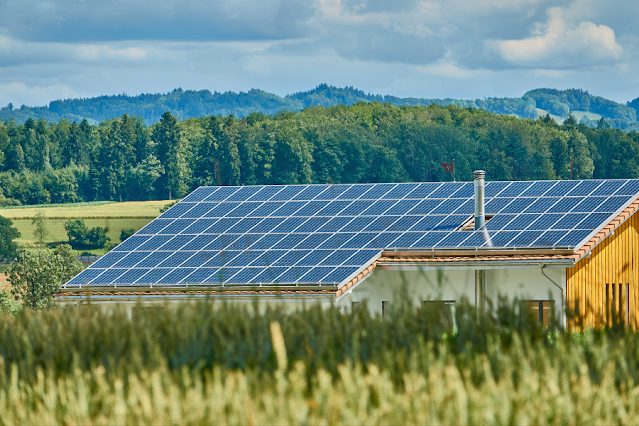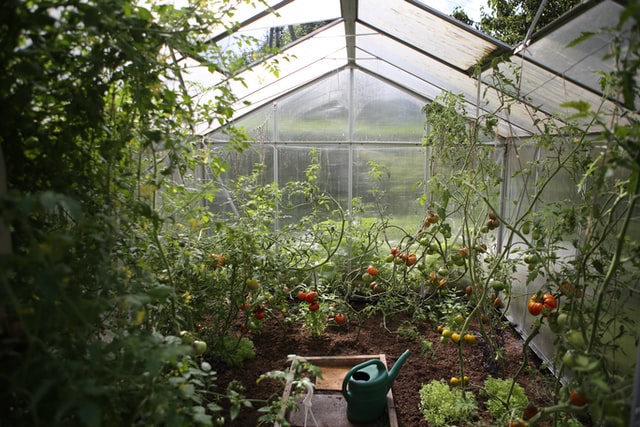 |
Why farmers today need to take up precision farming |
A knowledgeable and technology-based farm management system detects, evaluates, and manages field diversity, applying the right planting practices in the right place, at the right time, for optimal profitability, sustainability,, and conservation of land resources.
Although significant research efforts have been made, only a small proportion of farmers are applying a systematic approach to precision farming (TA) to transform the entire farming system into sustainable agriculture with low impact, inputs, high yield, and maintenance.
Precision farming is a technique where inputs are used in specific amounts to achieve a higher average yield compared to traditional farming methods. A big problem in India is the small size of the field. More than 58% of the country’s territory is less than one hectare (ha).
In the states of Punjab, Rajasthan, Haryana and Gujarat alone, more than 20% of the agricultural land covers an area of more than four hectares. Commercial and horticultural crops offer a wider range of applications for PA in cooperative farms.
Sustainable PA is the most important change in this century in business management, based on the use of information and communication technologies (ICT). It is the latest innovative technology based on sustainable agriculture and healthy food production, which increases profitability and productivity, cost efficiency, and reduces environmental impact.
Difficulty
Research shows that educational and financial challenges are two of the biggest challenges in implementing precision farming. Among the variables influencing learning problems, the lack of local experts, funding, and experienced research and advisory staff had a greater impact than others. In terms of financial hardship, AP and procurement costs play a larger role than other issues.
Why Precision Agriculture
Increasing productivity in agriculture
Prevents soil degradation
Efficient use of water resources
Dissemination of modern agricultural practices to improve quality and quantity and reduce production costs
Cultivate a positive attitude
Precision farming is changing the socio-economic status of farmers
Benefits
perspective of agriculture
technical perspective
ecological perspective
economic outlook
Accurate farming makes farming in climate
To achieve this goal, sustainable agriculture is needed. In countries with food insecurity, proper PA levels are also an effective tool when properly applied to local crops and local conditions. Thus, the introduction of new technologies in less advanced areas should start with a simple, cost-effective, and efficient combination of technologies and applications.
Agricultural advice through digital advisory services
Applying best practices is essential, and digital connectivity is key to bridging the technological division. Rural expansion plays an important role in the diffusion of technology and the private sector is becoming more active in this area.
Today, digital advisory services (DAS) are part of the offering of independent and profitable providers or platforms, mostly start-ups. In the first case, with a few exceptions, the freely available DAS is a unique tool that encourages the use of manufacturers ’key products. The main barriers to DAS implementation are limited digital infrastructure and ignorance, where India has a huge advantage over much of sub-Saharan Africa.
Drip irrigation
In addition to its advantages over other types of irrigation for higher yields, drip irrigation is the best soluble fertilizer delivery system. It also greatly reduces weed growth and the need for herbicides. The established micro-irrigation market in India is dominated by leading foreigners, especially Israeli, and local brands.
Solar pumps
Solar-powered pumps that pump water into drip systems are a multiplier of benefits. However, the adoption of solar pumps has been slow, despite their zero carbon footprint and low-maintenance photovoltaic technology. According to official estimates, more than twenty million well pumps are currently in use in India, mostly divided into electric and diesel pumps, costing many farmers between $ 1,500 and $ 10,000 for solar installation. Current subsidy policy changes could pave the way for mainstream adoption, further strengthening the role of private companies in promoting solar pump adoption.
Soil and crop monitoring
Unmanned aerial vehicles equipped with image data are often technically and economically useful for small communities and particularly suitable for small plots and contract farming. Early detection and correction of defects in soil and crops is a win-win situation for farmers and consumers. When purchased and operated by large farms, investments in drones and image analysis can be included in the price of the product paid to farmers.
The increasing use of land and crop monitoring equipment in agricultural cooperatives and contract farms is also benefiting from new forms of private sector investment that are now flowing from developed countries to emerging markets,.
Technology
The technologies include a wide range of hardware, software and hardware tools.
GPS receiver (global positioning system).
Differential Global Positioning System (DGPS)
Geographic Information Systems (GIS)
remote sensing
Application of Variable Rate
Combine harvester with capacity control
Disadvantages of precision farming
High price
Lack of technical knowledge and technology
Not suitable or difficult/expensive for small owners
Heterogeneity of farming systems and market failure
Policy Approach to Promoting Precision Agriculture at the Farm Level
Identify specific areas to encourage farming with crop-specific precision
Creating interdisciplinary teams of agronomists from various fields, engineers, manufacturers, and economists to study the full spectrum of precision farming
Provide comprehensive technical support to farmers to produce pilots or scalable models.
It is necessary to conduct a pilot study on farmers ’farms to demonstrate the results of precision farming applications,.
Inform farmers of the consequences of unbalanced doses of agricultural equipment such as irrigation, fertilizers, pesticides and pesticides.
.png)






.png)
Awesome informations
ReplyDeletewhooo amazing
ReplyDelete